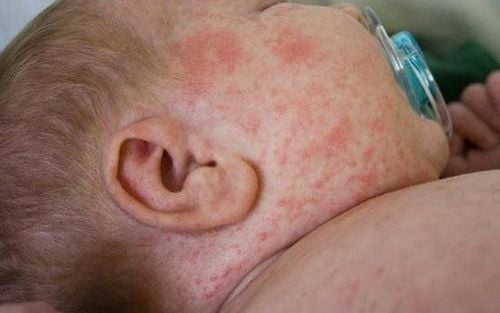Should babies wear diapers 24/7? Using diapers continuously every day for your baby is not recommended. Children's skin is very sensitive and needs gentle care. Using diapers all day can cause rashes and skin irritation. Therefore, babies should not wear diapers all day. If you have to use it regularly for some reason such as traveling, then choose diapers carefully. Nowadays, many companies are producing diapers that are skin-friendly and soft on the skin. Some even have air holes to keep your baby's skin dry and comfortable.
1. Should babies wear diapers all day?
In the early days of using diapers, your baby will probably have limited activities, including peeing and pooping. They will often wet the bed and you will have to arrange everything to make sure they are always comfortable and dry. Nowadays, disposable diapers are the most popular choice, but are they really safe for babies and should babies be diapered 24/7?
This is a question that every mother wants to know. Diapers are considered safe for babies, even for newborns less than a day old. In fact, some diapers are specially made for newborns. Wearing diapers all day is not recommended. Wearing diapers 24/7, including at night, increases the risk of skin irritation, rashes, and diaper rash. The moist environment inside the diaper is a favorable condition for bacteria and fungi to grow. In many cases, wearing diapers all day but poor hygiene puts children at risk of dermatitis, recurring many times or not responding to treatment.
When putting diapers on your baby, you should take a few precautions to protect your baby:
- Look at your baby's skin when changing diapers to check for rashes. Some babies have more sensitive skin than others.
- Disposable diapers absorb more liquid and are best used at night, or in situations where changing them frequently is not convenient. At other times of the day, you may want to consider other options.
- It is important to change diapers every two to three hours. Keeping diapers on for longer than this can increase the risk of infection or rashes.
- When your baby has loose stools, change the diaper immediately to maintain hygiene.
- Remember to bring diapers with you when traveling or going out to make caring for your baby easier.

2. Comparing diapers and cloth diapers
Many people prefer using cloth diapers over disposable diapers. There are several reasons for this:
- Cloth diapers have been used by mothers for a long time, while disposable diapers are a recent invention.
- There are many types of cloth diapers on the market today that are very easy to use.
- Cloth diapers can be washed and reused. Therefore, they are much more economical than disposable ones.
- Using cloth diapers is more environmentally friendly than disposable diapers.
- Some parents are skeptical about the chemicals used to make diapers and fear that they may cause problems
- Cloth diapers need to be changed frequently. This ensures that the baby is kept clean at all times, especially immediately after urinating and defecating.
3. When can a baby stop wearing diapers?
The transition from wearing diapers to using the toilet is a big milestone for babies. Many people also believe that diapers play a role in delaying potty training, since children are already used to wearing diapers. Most children will be toilet trained and ready to stop using diapers between 18 and 30 months of age, but this is certainly not a universal timeline. Some children still don't stop wearing diapers until they are 4 years old.
A child’s developmental readiness plays a big role in determining when they can stop using diapers. Every child develops at their own pace, and the age at which a child stops using diapers can actually vary quite a bit. Some studies have shown that potty training too early or too late in a child’s life can lead to developmental delays.
Although studies show that most children are physically and mentally ready to begin toilet training between 18 and 24 months of age, age is not the only factor. should be considered when deciding whether or not it is the right time to remove diapers.
To know when it is time to stop using diapers and start toilet training, look for signs that your child is ready, including:
- Ability to understand and follow simple instructions from adults.
- Keeping things dry for at least two hours at a time.
- Showing interest in using the potty
- Ability to sit on a chair
- Asking for a dirty diaper to be changed
- Showing an interest in wearing underwear.

Sometimes potty training failures are less related to the child's skills or readiness and more to do with the parent's actions. Whether the child has access to diapers can affect the time they actually stop using diapers and start using the toilet. Regardless of age, if a parent continues to leave diapers around, it can signal to the child that you are not serious about potty training and that you do not really expect the child to use the potty. After a while, children often become comfortable with using diapers and are not familiar with the toilet. The problem becomes even worse if your child continues to ask for diapers. As a parent, you should not give in. Keep diapers out of sight. If you think your child is really ready to be diaper-free, keep them somewhere your child cannot see or reach.
Caring for, protecting and nurturing children is a long process, so parents should be companions to help children develop their physical and mental abilities. If you notice that your child has unusual signs compared to his age or has difficulty in caring for and educating him, you can go to Vinmec International General Hospital to receive help from doctors and psychologists.
School-age children need to be supplemented with elemental zinc/day so that they can eat well, reach the standard height and weight and exceed the standard. Zinc plays a role in affecting most biological processes that take place in the body, especially the process of synthesizing nucleic acids, proteins... Organs in the body that lack zinc can lead to a number of diseases such as neurological disorders, irritability,... Therefore, parents need to learn about the role of zinc and guide the appropriate zinc supplementation for children.
In addition to zinc, parents also need to supplement their children with other important vitamins and minerals such as lysine, chromium, B vitamins, etc. to help their children eat well, have a good immune system, and increase resistance to less illness.
Please visit the Vinmec.com website regularly and update useful information to take care of your baby and your whole family.













